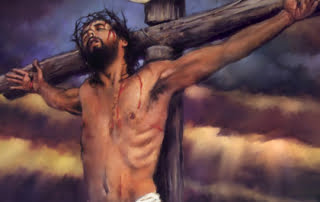When Jesus was with God prior to becoming a human being, he was the Logos or “Word.” He was a perfect spirit being, but not immortal, or of the divine nature. He was the first and only begotten son of God (John 3:16 KJV).
The Apostle Paul explains in 1 Corinthians 15, that there are spirit beings (bodies) and terrestrial (human) beings (bodies), and within those natures (spiritual and human), there is variety. Also, spirit bodies and human bodies are distinct and separate from one another and cannot be both at once. 1 Corinthians 15:40 (CSB), “There are heavenly bodies and earthly bodies, but the splendor of the heavenly bodies is different from that of the earthly ones.”
When the “Word” became flesh (John 1:14) He became Jesus the human being, leaving his spirit nature. This is also stated in Psalms 8:5-8 and Hebrews 2:7-9, “You have made him a little lower than the angels; You have crowned him with glory and honor…”
He was “made flesh,” became a human being, so that he could pay the ransom (1 Timothy 2:5,6) for Adam and all his progeny. As the scriptures bear out, the price to redeem Adam was a perfect human life (1 Corinthians 15:22).
Once Jesus died, paid the ultimate price, made the ultimate sacrifice, and proved faithful to God even unto death, the scriptures say it wrought God’s mighty power to raise him from the dead (Ephesians 1:17-23). Then God highly exalted him above all by granting him the divine nature, immortality. (Philippians 2:8, 9) “Immortality” signifies a state or condition not liable to death; not merely a condition of freedom from death, but a condition in which death is an impossibility.
Therefore, since Jesus was raised to the divine nature (God’s nature) and received immortality, he has reached the highest level of spirit nature and would not be any reason to be anything else.
Additional Resources: For a more thorough discussion of Jesus and his relationship to God, please use the following link and download the booklet: “The LORD our God is One LORD.”













